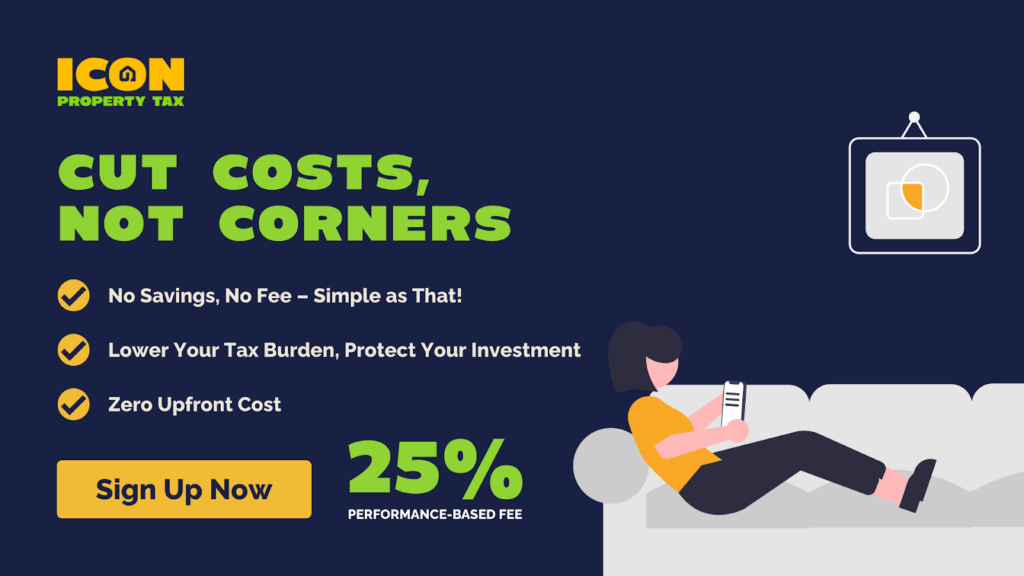Texas Property Tax Code Explained: What Every Homeowner Should Know
October 12, 2025
Key Takeaways:
- Key Players: Appraisal districts, review boards, and taxing units work together to determine property taxes and can be challenged through an appeal.
- Exemptions: Seniors, veterans, and disabled homeowners can receive significant property tax reductions through eligible exemptions.
- Fair Appeals: Strong evidence, such as comparable sales and repair documentation, plays a crucial role in achieving fair property tax outcomes.
Understanding how property taxes work in Texas can feel overwhelming. Between changing market values, complex assessments, and strict filing deadlines, it’s easy for homeowners to end up paying more than they should. Knowing the details of the Texas Property Tax Code gives you a clearer view of how your bill is calculated and what steps you can take to protect yourself from overpayment. Learning about the process also helps you recognize when an appeal might lead to meaningful savings.
At Icon Property Tax, we stand up for Texas homeowners by combining local knowledge with data-driven insights to secure fair property valuations. With over 30 years of collective experience and more than $100 million in tax savings for clients, our trusted local agents know what it takes to achieve results. We operate with zero upfront fees and a performance-based model, so you only pay when you save.
Key Players: Appraisal Districts, Review Boards, And Taxing Units
The Texas property tax system operates through several key groups, each with its own responsibilities that directly affect your annual tax bill. These organizations assess property values, review appeals, and determine tax rates, shaping how much homeowners ultimately pay. Understanding who these players are and how they interact can help you make informed decisions when reviewing or appealing your assessment:
County Appraisal Districts: Setting Market Values
County appraisal districts are responsible for determining your property’s market value each year based on local sales data, property features, and neighborhood trends. Adjustments are made for differences such as home size, renovations, and location to maintain fairness across comparable properties. At Icon Property Tax, our trusted local tax agents carefully analyze these assessments, identifying discrepancies that may be inflating your valuation and helping you fight for savings through a fair appeal process.
Appraisal Review Boards: Hearing Appeals
If you believe your property has been overvalued, the Appraisal Review Board (ARB) is the official body that reviews and decides on property tax appeals. The ARB evaluates evidence from both the homeowner and the appraisal district before reaching a conclusion. With over 30 years of combined experience, Icon Property Tax helps homeowners prepare strong, data-backed appeals using comparable sales, property photos, and professional reports to advocate for fair assessments.
Taxing Units: Setting The Rates
Taxing units include local entities such as school districts, cities, and counties, each setting its own tax rate to fund public services. While these rates cannot be appealed, understanding which units apply to your property helps clarify where your payments go. Through Icon Property Tax, you can easily access property insights to understand how rates and assessments combine to shape your total tax bill and take the first step toward an effective appeal.

Exemptions For Seniors, Veterans, And Disabled Homeowners
Property tax exemptions offer relief to qualifying Texas homeowners by reducing the taxable value of their property. These exemptions are available to seniors, veterans, and individuals with disabilities, helping lessen the financial load tied to homeownership. While Icon Property Tax does not process exemption applications, our team can review them before submission to help you make sure everything is in order:
Senior Citizen (65+) Exemption
Homeowners aged 65 and older may qualify for an additional homestead exemption that lowers the appraised value of their primary residence. One major benefit is the “tax ceiling,” which prevents school district taxes from increasing beyond the amount paid during the first year of qualification. At Icon Property Tax, our experts help review senior exemption applications and assess whether your property’s valuation accurately reflects your eligibility, standing up for your right to fair property taxes.
Disabled Person Exemption
Individuals with qualifying disabilities, as defined by the Social Security Administration, can receive the same benefits as senior homeowners. This exemption not only reduces the taxable value but can also freeze school district taxes to provide financial stability. Our local agents at Icon Property Tax can evaluate your appraisal data, helping identify whether your current tax value reflects your rightful exemption benefits and protecting you from overpaying.
Veteran And Surviving Spouse Exemptions
Disabled veterans may be eligible for property tax exemptions that range from partial reductions to full exemptions depending on their VA disability rating. Surviving spouses of veterans and service members killed in action may also qualify for similar relief. Through Icon Property Tax, you can look up your property insights, explore whether your assessment accurately accounts for these exemptions, and take steps to appeal if your value appears too high.
How To Calculate Your Texas Property Tax Bill
Calculating your property tax bill may seem complex, but understanding each part of the process can reveal errors or opportunities for appeal. By breaking the bill into clear steps, homeowners can better understand how market value, exemptions, and tax rates interact to form the final amount. Here’s how the calculation typically works:
Step 1: Find Your Assessed Value
Each year, your county appraisal district determines your home’s market value based on comparable sales and property characteristics such as square footage, age, and condition. This value represents what your property would likely sell for on January 1 of that year. If you believe your assessed value does not reflect your property’s true worth, Icon Property Tax can review your data and help you appeal for a fairer evaluation.
Step 2: Apply Exemptions
After your assessed value is set, qualifying exemptions are subtracted to lower the taxable portion of your property’s value. Common exemptions include the homestead, senior, disabled, and veteran exemptions. Homeowners who work with Icon Property Tax often discover that applying the right exemptions alongside a strong appeal can lead to significant long-term savings.

Step 3: Review Your Taxing Units And Rates
Multiple taxing units contribute to your total property tax, including school districts, cities, and counties. Each sets its own tax rate every year based on local budget needs. Using Icon Property Tax, homeowners can access property insights that break down which taxing units apply to their property and how each affects their total rate.
Step 4: Do The Math
After applying exemptions, multiply your taxable value by the total combined tax rate. For example, if your assessed value is $300,000 and you qualify for a $40,000 exemption, your taxable value becomes $260,000. With a 2.5% rate, the estimated bill would be $6,500. If that number seems higher than expected, Icon Property Tax can analyze your property data to help identify discrepancies and advocate for fairer property tax payments.
Step 5: Watch For Appraisal Caps
Texas law limits how much a homestead’s appraised value can increase each year. The cap restricts annual growth to 10% of the previous year’s value, not counting new improvements. Homeowners who notice increases beyond this limit can rely on Icon Property Tax to review their assessment and fight for savings through a data-driven appeal.
Evidence That Carries Weight With ARB Members
Strong evidence is the foundation of a successful property tax appeal. The Appraisal Review Board (ARB) values documentation that is factual, consistent, and supported by professional data. Knowing which types of proof carry the most weight can make a crucial difference in achieving a fair outcome during your appeal:
Comparable Sales
Recent sales of similar homes are often the strongest evidence in an appeal. The most effective comps are properties that closely match yours in age, size, condition, and location. At Icon Property Tax, our team reviews these comparisons, making precise adjustments for differences such as renovations, lot size, or additional features to present a well-supported argument for property tax reduction services.
Photos Of Property Conditions
Visual documentation helps demonstrate issues that may reduce your property’s market value, such as needed repairs or outdated features. When paired with written contractor estimates, photos can strongly influence how ARB members view your case. Icon Property Tax assists homeowners in compiling clear and accurate photo evidence to strengthen their appeal and advocate for fair property taxes.
Independent Reports And Records
Third-party documents such as appraisals, inspection reports, or insurance claims can add credibility to your case. These records help validate your property’s actual condition and market value. Through Icon Property Tax, you can access property insights that help you identify which professional reports will support your case best and give your appeal a stronger foundation.
Property Record Card Review
Your property record card contains essential details like square footage, number of rooms, and any special features. Errors in this record often lead to inflated valuations. Icon Property Tax helps homeowners verify these records, identify discrepancies, and present clear corrections supported by documentation during ARB hearings.

Final Thoughts
Understanding the Texas Property Tax Code empowers homeowners to take control of their property tax responsibilities. Knowing how appraisal districts, review boards, and taxing units work, along with the types of exemptions and evidence that carry weight, gives you the tools to advocate for fair assessments. With the right knowledge and support, you can approach your appeal process with clarity and confidence.
At Icon Property Tax, we combine local expertise with modern data tools to help you analyze your property’s valuation and spot potential overpricing. Our trusted local tax agents have collectively secured over $100 million in savings for Texas homeowners, operating with zero upfront fees and a simple “only pay when you save” model. Whether you are reviewing your assessment or preparing for an appeal, our team stands ready to protect you from overpaying on your property taxes.
If you are ready to understand your property’s true value, start today with Icon Property Tax’s property insights tool. Search your address, view your property details, and take the first step toward a fair and accurate tax assessment with a team that fights for your right to equitable taxation.
Read Also:
- How Property Taxes Work And What You Need To Know About Them
- Can You Avoid Property Taxes? States With No Or Low Rates
- How Home Renovations Can Affect Your Property Taxes
Frequently Asked Questions About The Texas Property Tax Code
What is the role of property tax reduction services in Texas?
Property tax reduction services help homeowners analyze their property valuations, identify overassessments, and file appeals. They provide expert representation and data-backed strategies to help secure fair property values.
How can I tell if my property is overvalued?
Compare your home’s assessed value with recent sales of similar properties in your neighborhood. If your valuation is noticeably higher, it may be time to review your assessment with a professional like Icon Property Tax.
Do property tax reduction services charge upfront fees?
Reputable services like Icon Property Tax operate on a performance-based model. This means you only pay a fee if your property taxes are successfully reduced.
How long does a property tax appeal take in Texas?
The appeal process typically takes a few weeks to a few months, depending on the county and the complexity of the case. Once filed, hearings are scheduled by the Appraisal Review Board to evaluate the presented evidence.
Are there any deadlines for filing a property tax appeal?
Yes. Most Texas homeowners must file their property tax appeal by May 15 or within 30 days of receiving their appraisal notice. Missing this deadline means waiting until the next tax year to contest the valuation.
Can homeowners handle their own property tax appeal?
Yes, but professional services often have stronger access to data and experience in presenting evidence. Working with a team like Icon Property Tax increases your chances of achieving an accurate and fair result.
Does appealing my property tax affect my future assessments?
No. Appealing your property tax does not penalize or negatively affect future assessments. Each year’s valuation is based on current market conditions and property data.
Can I appeal both my market value and my assessed value?
Yes. You can appeal your market value if it exceeds comparable sales and your assessed value if the appraisal district failed to apply exemptions or caps properly.
What types of properties can use property tax reduction services?
Services apply to residential, commercial, and investment properties. Each property type requires tailored data analysis to ensure accurate valuations and effective appeals.
Are property tax reduction services worth it for smaller homes?
Absolutely. Even modest reductions can result in meaningful yearly savings. A small correction to your valuation can lead to consistent tax relief over time.

